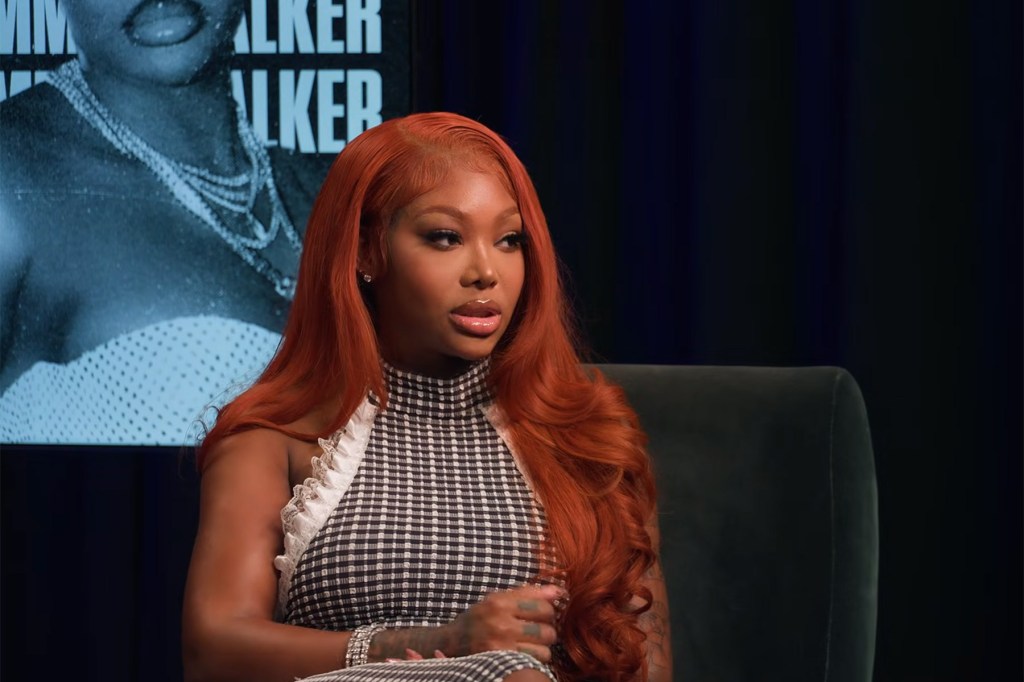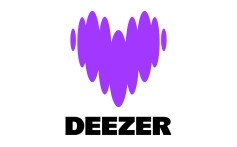News
Page: 212
All products and services featured are independently chosen by editors. However, Billboard may receive a commission on orders placed through its retail links, and the retailer may receive certain auditable data for accounting purposes.
Trending on Billboard
The 2025 Billboard Latin Music Awards is finally here. Hosted by Goyo, Elizabeth Gutiérrez and Javier Poza, the annual award show will broadcast live at 8 p.m. ET at the James L Knight Center in Miama, Florida. The show will air live on Telemundo, which you can stream online with DirecTV.
Explore
See latest videos, charts and news
Puerto Rican megastar and the upcoming Super Bowl LX halftime headliner Bad Bunny leads the night with a whopping 27 total nominations. Fuerza Regida comes in second with 15, Rauw Alejandro with 14, Karol G and Tito Double P, each with 10 nods and Peso Pluma with 9 mentions. See the full list of nominees here. On top of his lengthy list of nominations, Bad Bunny is also set to receive the Latin Artist of the Century award.
Here’s everything you need to know about the Billboard Latin Music Awards, including how to watching online without cable.
The 2025 Billboard Latin Music Awards, at a Glance:
When: Thursday, October 23 at 8 P.M. ET
Where: James L Knight Center in Miama, Florida
Broadcast: DirecTV (Telemundo), Peacock, Fubo
Host: Goyo, Elizabeth Gutiérrez and Javier Poza
Who’s Performing at the 2025 Billboard Latin Music Awards?
Tonight’s performance lineup includes Daddy Yankee (DY), Grupo Frontera, Kapo, Abraham Mateo, Ángel Lopez, Arthur Hanlon, Danny Ocean, Ozuna, Olga Tañón, Laura Pausini — this year’s Billboard Icon Award recipient — La Arrolladora Banda El Limón de René Camacho, Beéle, Juan Duqu, Musza, Netón Vega, NXNNI, and Óscar Maydon.
How to Watch the 2025 Billboard Latin Music Awards Online
The 2025 Latin Billboard Awards will broadcast live on Telemundo. If you don’t have cable, DirecTV, Peacock and Fubo are great affordable options to stream the show live online.
DirecTV
Join DirecTV with a five-day free trial to enjoy live entertainment, like the 2025 Latin Billboard Awards, as well as your favorite sports, TV shows and movies. The streaming service’s signature packages feature more than 90 channels: Telemundo, ABC, TNT, ESPN, NBA TV, ESPN2, FS1, SEC, MLB Network, TLC, CBS, USA, Bravo, E!, BET, MTV and more.
A subscription to DirecTV — which comes with Telemundo — gets you access to live TV, local and cable channels, starting at $49.99 for the first month of service ($89.99 per month afterwards). The service even offers a five-day free trial to watch for free, if you sign up now.
Peacock
With Peacock, there is no free trial for new users but the platform offers cheap plans starting at just $10.99 per month, or you can get an annual plan for $109.99 per year (which gets you 12 months of streaming for the price of 10).
Also, Peacock and Apple TV have recently joined forces to give new and returning subscribers more originals, live sports and music programming at one low price. Prices start at $14.99 per month for the Apple TV and Peacock Premium (ad-supported) bundle, which is a nearly a 38% savings, if you were to subscribe individually. You can also upgrade to the Apple TV and Peacock Premium Plus (ad-free) bundle for $19.99 per month, a savings of almost 35% the individual streaming plans.
Fubo
Fubo’s streaming plans start at $59.99/month (regularly $79.99) after a 5-day free trial. Fubo Pro, one of the cheapest among the aforementioned streaming plans, includes 202 channels, 1000 hours of Cloud DVR and streaming on up to 10 screens. For Spanish speakers, Fubo Latino is $19.99/month (regularly $32.99/month) to stream 62 channels.
All products and services featured are independently chosen by editors. However, Billboard may receive a commission on orders placed through its retail links, and the retailer may receive certain auditable data for accounting purposes.
Fresh off their tour across North America, Turnstile partners with Fender on a new line of guitars and bass guitars just before the Baltimore-based band heads to Europe and Oceania to continue their “Never Enough” tour.
Explore
See latest videos, charts and news
With prices starting at $1,499.99, the American Professional Classic line features a brand update of Fender’s iconic guitarist, such as the Telecaster, Stratocaster, Jazzmaster, and Jaguar, while the new series also has updates of classic bass styles, like the Jazz, Precision, and Mustang.
According to Fender, the series has all-new Coastline pickups that are designed for “clarity, punch, and dynamic expression,” to deliver the brand’s “signature warmth and bite.” The new American-made guitars and bass guitars are considered reliable, durable and consistent, which are qualities ideal for bands on tour performing night-after-night.
“When you’re in a different place constantly, sometimes the most familiar thing is the guitar that you bring every single night,” says Turnstile guitarist Pat McCrory in a statement. “We look for something that sounds the same every time, sounds exactly how you want it, but also has versatility because spaces change. Sometimes you play outside, sometimes it sounds different, sometimes you play inside or there’s noise lighting. Having some durability but flexibility is very important.”
Scroll down and shop a few musical instruments from the Fender American Professional Classic lineup.
Fender
Fender American Professional Classic Stratocaster
Fender
Fender American Professional Classic Hotshot Telecaster
Fender
Fender American Professional Classic Precision Bass
Fender
Fender American Professional Classic Mustang Bass
Meanwhile, you can get free shipping to your home on all orders over $50 (so you’ll be covered with anyone of these guitars or bass guitars), while Fender offers easy returns and exchanges within 30 days of purchase. Learn more about Fender’s return and exchange policy here.
The Fender American Professional Classic line, which comes in an assortment of styles and colors, is now available at Fender, Guitar Center, Sweetwater and other retailers. In the meantime, watch Turnstile perform “Look Out For Me” below.
Want more? For more product recommendations, check out our roundups of the best Xbox deals, studio headphones and Nintendo Switch accessories.

Trending on Billboard
Now that Billboard’s R&B/hip-hop team has posted its Grammy predictions for four of the R&B categories in the 68th annual race — best R&B performance, best traditional R&B performance, best R&B song and best R&B album — it’s time to review the top prospects in the fifth and final category: best progressive R&B album.
Recent winners in the category include Lucky Daye (Table for Two, 2022), Steve Lacy (Gemini Rights, 2023) and SZA (SOS, 2024). Thanks to a tie, two winners took home the gramophone in 2025: longtime independent artist Avery Sunshine (So Glad to Know You) and the R&B/hip-hop super duo NxWorries comprised of Anderson .Paak and producer Knxwledge (Why Lawd?).
Formerly known as best urban contemporary album, the category was renamed best progressive R&B album in 2020. In recognizing “excellence in albums of progressive R&B vocal tracks,” per the Recording Academy’s definition, such entries are rooted in many of the elements comprising R&B but also embrace additional sounds including hip-hop, rap, pop, dance and electronic music. The rulebook further defines the category’s music as having “an emphasis on experimentation and innovation, often through unconventional song structures, dynamic production techniques and multi-genre influences that challenge traditional R&B conventions.”
Albums released between Aug. 31, 2024 and Aug. 30, 2025 fitting this category include familiar vets like Bilal (Adjust Brightness), Gallant (Zinc), Jessie Reyez (Paid in Memories), Kali Uchis (Sincerely) and Allen Stone (Mystery). A host of upstarts also waved the progressive banner in their own inimitable styles, such as SAILORR (From Florida’s Finest), Laila! (Gap Year), Jordan Adetunji (A Jaguar’s Dream) and Cautious Clay (The Hours: Morning).
In addition to those on-the-cusp contenders, there are others of note to consider. Chief among them is the group FLO (Access All Areas), KWN (With All Due Respect), Destin Conrad (Love on Digital), Fridayy (Some Days I’m Good, Some Days I’m Not), UMI (People Stories) and Kelela (In the Blue Light).
With such a cornucopia of projects to choose from, predicting the nods in this category isn’t an easy task. One scenario could have Kali Uchis, Destin Conrad, Fridayy and Jessie Reyez fighting for the last spot. Or perhaps there could be another surprise from left field a la Avery Sunshine at the 67th annual ceremony.
So which five albums will score nods for best progressive R&B album when the Recording Academy unveils its slate on Nov. 7? Check out Billboard’s predictions below.
PARTYNEXT DOOR & Drake, $ome $exy $ongs 4 U
Source: Anadolu / Getty
After weeks of ICE terrorizing Brown and Black communities in cities like Los Angeles and Chicago, it seems like they’ve turned their attention to the Big Apple. Earlier this week, the Gestapo arm of this Trump administration carried out a sudden operation in New York’s famed Canal Street in downtown Manhattan.
Just days after right-wing influencer Savanah Hernandez complained about the “migrant” street vendors out and about in the famous section of New York City, ICE showed up and began arresting people in the street who were selling knockoff merchandise, as they’ve been doing so for decades.
According to Gothamist, more than two dozen “federal agents” invaded Canal Street Tuesday (Oct. 20) and began rounding up anyone with dark skin and asking them for documentation. Luckily, one man was able to provide proof that he was actually a U.S. citizen, and after being let go began cursing out his “arresting officers” as they walked away to look for other suspected illegal migrants.
Per Gothamist:
Love News? Get more! Join the Hip-Hop Wired Newsletter
We care about your data. See our privacy policy.
Late Tuesday evening, DHS spokesperson Tricia McLaughlin said in a statement that the raid was “a targeted, intelligence-driven enforcement operation” that was “focused on criminal activity relating to selling counterfeit goods.” McLaughlin said the effort included multiple federal agencies, including the FBI, DEA, ATF, IRS-CI and Customs and Border Protection.
“During this law enforcement operation, rioters who were shouting obscenities, became violent and obstructed law enforcement duties including blocking vehicles and assaulting law enforcement,” she said. “Already one rioter has been arrested for assault on a federal officer.”
A spokesperson for the NYPD said the department was not involved in the operation.
Unfortunately for ICE, they were met with strong resistance from everyday New Yorkers who loudly shamed them, flipped them off and even kicked their vehicles, as it’s become apparent to many Americans that this is nothing more than an ethnic cleansing perpetuated by a blatantly fascist Trump administration.
Still, Donald Trump promised more surprise ICE raids similar to that of Canal Street would be coming to New York City, as he needs more red meat to feed to his ever-dwindling MAGA base.
What do y’all think about the growing ICE raids and outrage from Americans over it? Let us know in the comments section below.
Trending on Billboard In the first Wicked film, fans of the musical got to see Elphaba as a child — and, as revealed in a new teaser, they’ll now get to see little Glinda when Wicked: For Good hits theaters in November. In a preview shared by Universal Pictures on Wednesday (Oct. 22), an elementary-school-age […]
Trending on Billboard Summer Walker has addressed the infidelity accusations surrounding her ex-boyfriend Lil Meech. In a new interview on 360 With Speedy, host Speedy Morman asks Summer to briefly elaborate on the infamous “grocery” video that led to Walker and Lil Meech’s breakup back in 2023. The video in question involved leaked Ring cam […]

Trending on Billboard Megan Thee Stallion is enjoying her WAG era. Klay Thompson and the Dallas Mavericks kicked off the NBA season on Wednesday night (Oct. 22) against the San Antonio Spurs and Megan was courtside to cheer on her boo. Explore See latest videos, charts and news The Houston Hottie also had a gift […]
Trending on Billboard
Gains from self-paying subscribers almost equally offset losses from partnerships as French music streaming company Deezer’s revenue fell 0.9% to 131.4 million euros ($154 million) in the third quarter, the company announced Thursday (Oct. 23).
“Subscriber growth in France has accelerated for a third consecutive quarter, confirming the positive impact of our differentiation initiatives in our home market,” CEO Alexis Lanternier said in a statement. “In the rest of the world, subscription numbers in the Direct segment are also picking up pace, reflecting the quality of our service and the appeal of our brand as we champion transparency and fairness in music streaming.
Related
Revenue from partnerships fell 12.6% to 35.6 million euros ($42 million) and subscribers from these partnerships dropped 24.5% from the prior-year quarter. Deezer powers music streaming platforms for numerous companies globally and counts these partnership subscribers separately from subscribers who pay directly. The company attributed the loss in its partnerships business to “the residual impact” of a business model shift by Mercado Libre, a Latin America e-commerce company that partnered with Deezer in 2023. A focus on higher average revenue per user (ARPU) also contributed to the decline in partnership subscribers, the company said.
Direct subscribers grew in number to 5.5 million, up nearly 10%, and direct subscription revenue increased 1.6% to 87.9 million euros ($103 million). France accounted for 3.7 million of those direct subscribers, an 11.7% increase from the prior-year period, which the company attributed to “good performance” of family plans. Direct subscribers from the rest of the world rose 6.1% to 1.8 million.
ARPU from direct subscribers fell nearly 5% to 5.4 euros ($6.31) per month. Partnership ARPU rose 6% to 3.1 euros ($3.62) per month.
Related
Other revenue, which consists of advertising and ancillary revenue, rose 17.4% to 7.9 million euros ($9.2 million). Deezer said the improvement “mainly reflected the performance of the white labelling solutions for hardware / media partners.”
While relatively small compared to the likes of Spotify and Apple Music, Deezer has attempted to separate itself from its competitors by making combating AI music a business priority. In September, the company revealed that it detected the delivery of over 30,000 fully AI-generated tracks each day. That accounts for 28% of all daily track uploads, up from 18% in April and 10% in January. These fully AI-generated tracks are eliminated from Deezer’s algorithmic recommendations and excluded from editorial playlists.
Looking ahead, Deezer confirmed its full-year guidance in which it expects positive adjusted earnings before interest, taxes, depreciation and amortization (EBITDA) and positive free cash flow for the second consecutive year.
Trending on Billboard
The legal battle between A$AP Relli and A$AP Rocky is continuing on despite Rocky’s acquittal on charges of shooting his former friend and associate this past February.
On Thursday (Oct. 23), a judge in Los Angeles refused to throw out the civil defamation lawsuit brought by Relli (Terrell Ephron) stemming from the alleged altercation with Rocky (Rakim Mayers) near a Hollywood hotel in 2021.
Related
Relli alleges that Rocky fired a handgun at him twice during their argument, while Rocky maintains that the “weapon” was a prop gun filled with blanks. Prosecutors charged Rocky with two felony assault counts in 2022, but he was acquitted of both criminal charges following a sensational trial this year.
Still, Relli is continuing to claim that Rocky shot him in a civil lawsuit that he brought around the same time as his former A$AP Mob collaborator’s arrest. That case, in which Relli seeks financial damages from Rocky for assault, battery and emotional distress, is scheduled to go to trial in January.
Relli separately brought a defamation lawsuit in 2023 against both Rocky and his criminal defense lawyer, Joe Tacopina. Relli says the duo smeared his name when Tacopina gave press interviews calling Relli’s shooting claims “extortion” and a “get-rich-quick-scheme.”
Rocky and Tacopina sought to get the defamation suit thrown out under California’s anti-SLAPP statute, which guards against frivolous litigation that threatens free speech. But Judge Randolph M. Hammock ruled Thursday that Relli’s slander claims don’t meet this standard for dismissal.
Related
Judge Hammock said Rocky and Tacopina cannot rely on a principle known as the litigation privilege, which provides a complete free speech shield for statements made in court proceedings, because the lawyer’s media interviews were given “to shape the public opinion” rather than advance any legal position. The judge also determined that Relli’s defamation claim is not “meritless” under the anti-SLAPP guardrails.
“For purposes of this motion, plaintiff has established all elements of his defamation claims,” wrote the judge. “Plaintiff submits evidence that Tacopina published statements to media outlets, in essence contending that plaintiff fabricated the incident with Mayers then filed the lawsuit to force a payout.”
“Plaintiff refutes this in his declaration, as he attests that Mayers fired a handgun and struck him in the hand,” continues Judge Hammock’s decision. “He establishes that Tacopina’s statements were defamatory, as they labeled Ephron a liar and extortionist. Finally, Ephron established that these statements caused him damages. For purposes of this motion, plaintiff has met his burden.”
Relli has not actually won on any defamation claims yet, but the lawsuit moved past a major obstacle in Thursday’s ruling. Now, the matter will continue forward through evidence discovery and toward a possible trial.
Relli’s lawyers declined to comment on Thursday. Reps for Rocky and Tacopina did not immediately return requests for comment.

Trending on Billboard
A Washington, D.C., man who was detained after playing the Evil Empire music from Star Wars to protest National Guard troops is suing the government for violating his constitutional rights.
In a lawsuit filed Thursday (Oct. 23), Sam O’Hara claims that he was wrongfully handcuffed and detained for playing “The Imperial March” — John Williams’ iconic villain music from the sci-fi franchise — as he recorded videos of the troops that he later posted to TikTok.
Related
The case, filed by the American Civil Liberties Union (ACLU), claims the brief detention violated O’Hara’s right to peacefully protest under the U.S. Constitution’s First Amendment.
“The law might have tolerated government conduct of this sort a long time ago in a galaxy far, far away,” the ACLU wrote, playing on the famed opening text from Star Wars. “But in the here and now, the First Amendment bars government officials from shutting down peaceful protests.”
“The Imperial March (Darth Vader’s Theme),” written by Williams, first appeared in The Empire Strikes Back, the 1980 sequel to the original Star Wars. The famed composer’s score for the film reached the No. 4 spot on the Billboard 200 in July 1980, eventually spending 28 weeks on the chart.
“In the Star Wars franchise, The Imperial March is the music that plays when Darth Vader or other dark forces enter a scene or succeed in their dastardly plans,” O’Hara’s lawyers write. “It is also the soundtrack of Sam O’Hara’s protest against the National Guard deployment in D.C.”
Related
President Donald Trump declared a “crime emergency” in Washington, D.C., in August and ordered the takeover of law enforcement in the city, with National Guard troops arriving in the capital shortly thereafter. The move, along with other military deployments to American cities, has been deeply controversial and led to widespread protests.
O’Hara, who was “deeply concerned about the normalization of troops patrolling D.C. neighborhoods,” began protesting their presence in his city by walking behind them as they marched through the streets — and by playing a score recognized globally as a theme for tyranny.
“Using his phone and sometimes a small speaker, he played The Imperial March as he walked, keeping the music at a volume that was audible but not blaring,” the ACLU’s lawyers write. “Mr. O’Hara recorded the encounters and posted the videos on his TikTok account, where millions of people have viewed them.”
Related
According to O’Hara, most National Guardsmen “ignored Mr. O’Hara, and a few smiled or laughed,” but one was “not amused by this satire.” The trooper, Sgt. Devon Beck, allegedly turned around and threatened to call in local police to “handle” him if he kept playing the song. When O’Hara kept going, he says Metropolitan Police Department officers quickly arrived and put him in cuffs, shutting down his protest.
O’Hara says the cuffs were placed so tightly that they left marks on his wrists, and were not loosened after he complained. He also says his detention was “needlessly” prolonged before he was eventually released 15 to 20 minutes later.
In technical terms, the lawsuit names Beck, four D.C. police officers, and the D.C. District Attorney as defendants. It accuses them of violating both the First Amendment and the Fourth Amendment, which guards against unreasonable searches and seizures.

 State Champ Radio
State Champ Radio 






